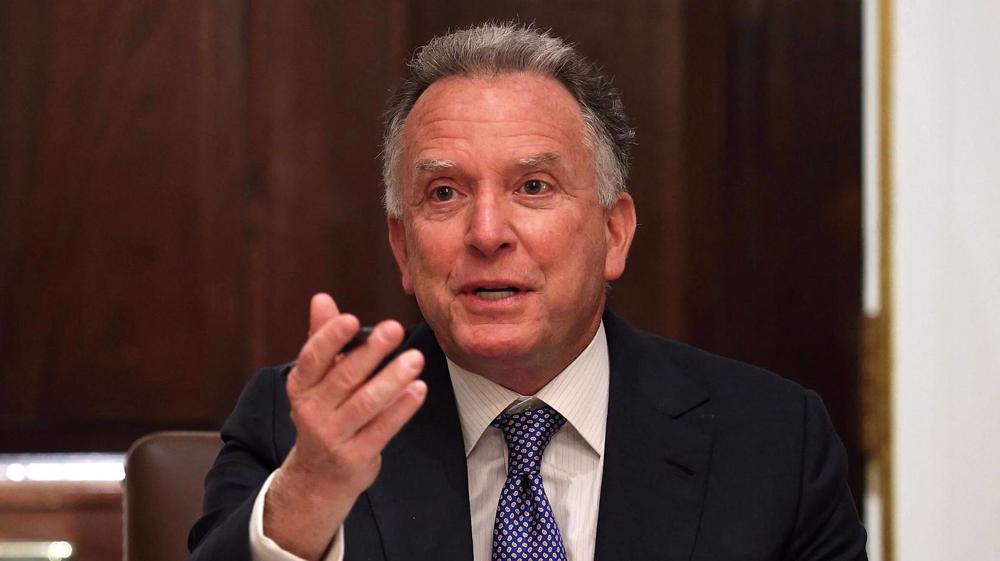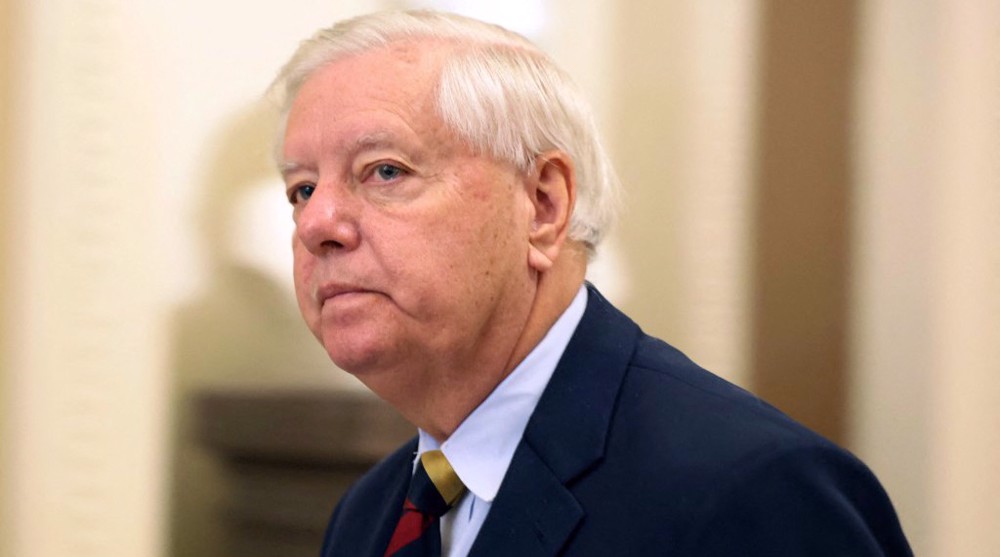US imposes sanctions on Myanmar army chief over Rohingya crimes
The United States has imposed sanctions on Myanmar's military chief and three other top officers over their role in the atrocities against the Rohingya Muslim minority group in the Buddhist-majority country.
The US State Department announced on Tuesday that army chief Min Aung Hlaing and two other senior commanders, Brigadier Generals Than Oo and Aung Aung, were responsible for the massacres of Rohingya Muslims in Myanmar, also known as Burma.
The Department, barring the military officials and their families from entering the US, said it had found credible evidence that they had been involved in the violence that took place two years ago and forced about 740,000 Rohingya to flee across the border to Bangladesh.
"We remain concerned that the Burmese government has taken no actions to hold accountable those responsible for human rights violations and abuses, and there are continued reports of the Burmese military committing human rights violations and abuses throughout the country," US Secretary of State Mike Pompeo said in a statement.
Pompeo said a recent disclosure that Min Aung Hlaing had ordered the release of Myanmarese soldiers convicted of "ethnic cleansing" of Rohingya in 2017 was "one egregious example of the continued and severe lack of accountability for the military and its senior leadership."
The US State Department has so far stopped short of calling the abuses against Rohingya Muslims genocide, preferring instead to ethnic cleansing and a "well-planned and coordinated" campaign of mass killings, gang rapes and other atrocities.
Myanmar’s western Rakhine state came to global attention in 2017, when the army drove thousands of ethnic Rohingya across the border into Bangladesh. Myanmar is facing growing international calls for accountability over the Rakhine massacre.
Last year, a UN fact-finding mission, said the campaign against the Rohingya was orchestrated with "genocidal intent." It urged charging the army chief and five other generals with the "gravest crimes under international law." The International Criminal Court (ICC) has already opened a preliminary examination into the violence.
About 800,000 Rohingya Muslims are living in camps in Bangladesh after they were driven out of Rakhine during the deadly campaign in 2017, which the United Nations has described as ethnic cleansing.
Rakhine has been the scene of communal violence since 2012. Many Muslims have been killed while tens of thousands have been forced to flee as a result of attacks by Buddhists. The refugees largely live in camps in dire conditions.
The Rohingya have inhabited Rakhine for centuries, but most people in Buddhist-majority Myanmar see them as unwanted immigrants from Bangladesh and the state denies them citizenship.
Iran’s layered arsenal primed to deter – and decimate – US warships in Persian Gulf
Iranian commander dismisses US military buildup in West Asia as ‘theatrical gesture’
Trump ‘curious’ why Iran hasn’t ‘capitulated’ despite massive US military buildup: Witkoff
Hawkish US senator pushes Trump to ignore aides, press ahead with war against Iran
Far-right, anti-Islam protest sparks counter-protests in Manchester
Press TV's news headlines
Sudan’s mining sector suffers $7 billion loss amid ongoing civil war
Ansarullah slams Israel’s massacre in east Lebanon, urges unified Arab action












 This makes it easy to access the Press TV website
This makes it easy to access the Press TV website